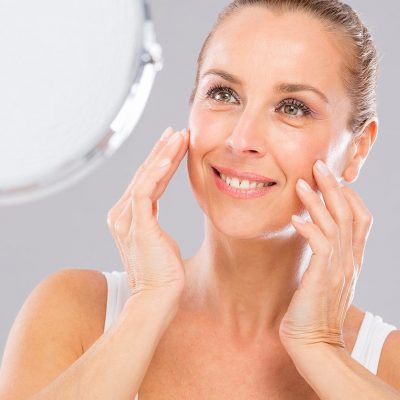Psoriasis is a chronic skin disease that manifests itself mainly with skin symptoms (dryness, itching, scaly skin, abnormal patches and plaques). It affects about 2% of the population and is mediated by an altered immune system response that triggers the proliferation of skin cells. Depending on the severity, there are different therapeutic options (topical medications, … [Read more...]
Women Beauty

How Your Skin Tone Could Affect Your Meds
Skin pigmentation may act as a "sponge" for some medications, potentially influencing the speed with which active drugs reach their intended targets, a pair of scientists report in a perspective article published in the journal Human Genomics. The researchers argue that a sizable proportion of drugs and other compounds can bind to melanin pigments in the skin, leading to … [Read more...]
Hope For Autoimmune Skin Disorder Sufferers With New Immunotherapy Strategy
Researchers, led by University of Melbourne's Professor Laura Mackay, a Laboratory Head and Immunology Theme Leader at the Peter Doherty Institute of Infection and Immunity (Doherty Institute), discovered distinct mechanisms controlling different types of immune cells, and found that, by precisely targeting these mechanisms, they could selectively eliminate 'problematic cells' … [Read more...]
Nanobody May Lead to Treatment For Retinitis Pigmentosa
A team of scientists from the University of California, Irvine, believe they have discovered a special antibody which may lead to a treatment for Retinitis Pigmentosa, a condition that causes loss of central vision, as well as night and color vision. The study, Structural basis for the allosteric modulation of rhodopsin by nanobody binding to its extracellular domain, was … [Read more...]
Oral Barrier is Similar in Ceramide Composition to Skin Barrier
The skin is the body's first line of defense against the environment, particularly against pathogens, chemicals, and allergens. It is now known that a class of biological molecules called acylceramides and their metabolites, protein-bound ceramides, are essential to the formation of this barrier. The outermost tissues of the mouth are closely related to the skin and have … [Read more...]
Will Revitalizing Old Blood Slow Aging?
Many scientists are looking for the elements of young blood that can be captured or replicated and put into a pill. But what if the best way to get the benefits of young blood is to simply rejuvenate the system that makes blood? "An aging blood system, because it's a vector for a lot of proteins, cytokines, and cells, has a lot of bad consequences for the organism," says … [Read more...]
Microneedling Beats Chemical Peels for Acne Scar Treatment
Chemical peels are a common treatment for acne scars, but a Rutgers study finds that microneedling is significantly more effective for patients with dark skin. Babar Rao, a professor of dermatology and pathology at Robert Wood Johnson Medical School, and fellow researchers randomly assigned 60 patients with acne scars and dark skin -- Fitzpatrick Skin Phototype IV to VI -- … [Read more...]
Bye, bye, biopsy? Handheld device could Painlessly Identify Skin Cancers
Researchers at Stevens Institute of Technology are now developing a low-cost handheld device that could cut the rate of unnecessary biopsies in half and give dermatologists and other frontline physicians easy access to laboratory-grade cancer diagnostics. "We aren't trying to get rid of biopsies," said Negar Tavassolian, director of the Bio-Electromagnetics Laboratory at … [Read more...]
Chemical Compound Promotes Healthy Aging, Study Finds
A recently discovered chemical compound helped elderly mice with obesity lose fat and weight, add muscle and strength, reduce age-related inflammation and increase physical activity, a new study shows. The study, published in the Journal of Cachexia, Sarcopenia and Muscle, provides the first evidence that BAM15, a mitochondrial uncoupler, prevents sarcopenic obesity, or … [Read more...]
A Serendipitous Finding Lends New Insight into How Atopic Dermatitis Develops
Atopic dermatitis, a common skin condition affecting both children and adults, is often thought of as an inflammatory disease that arises from a breakdown in the barrier function of the skin. Now a new study pinpoints a cascade of inflammatory signaling that precedes the appearance of skin ulcers, shedding light on the early stages of the condition and identifying potential … [Read more...]
Gene for sex hormone synthesis could play key role in eczema
A study led by UT Southwestern dermatologists suggests that a common inflammatory skin condition may stem from poorly regulated sex hormones. The finding, published this week in PNAS, could offer an unexpected new target to fight this condition. Atopic dermatitis (AD) is a form of eczema. AD affects up to 13% of children and 10% of adults, with an annual treatment cost of … [Read more...]
Our Eyes and Brain Work Together to Create a ‘Pipeline’ of Meaning – New study
Humans read by 'pre-processing' written words to create a pipeline of meaning, according to new research at the University of Birmingham. A study, published in Nature Communications, shows that each pre-processing judgement can take place extremely rapidly -- within just 100ms after the eye lands on the previous word. The neuronal activity required to scan the next word in a … [Read more...]
For Psoriasis, Targeting Skin Protein may Help Control Inflammation
Results from a Michigan Medicine study reveal that targeting a protein found in the skin may reduce the severity of psoriasis. Interferons play a major role in activating the body's response to viral threats, but they have also been detected in the lesions of many psoriasis patients at abnormal levels. Psoriasis is an autoimmune disease that causes overproduction of skin … [Read more...]
Gene Therapy an Option for Neuroprotection to Prevent Glaucoma Vision Loss
A form of gene therapy protects optic nerve cells and preserves vision in mouse models of glaucoma, according to research supported by NIH's National Eye Institute. The findings suggest a way forward for developing neuroprotective therapies for glaucoma, a leading cause of visual impairment and blindness. The report was published in Cell. Glaucoma results from irreversible … [Read more...]
How the Brain Paints the Beauty of a Landscape
How does a view of nature gain its gloss of beauty? We know that the sight of beautiful landscapes engages the brain's reward systems. But how does the brain transform visual signals into aesthetic ones? Why do we perceive a mountain vista or passing clouds as beautiful? A research team from the Max Planck Institute for Empirical Aesthetics has taken up this question and … [Read more...]
Skin and Bones Repaired by Bioprinting During Surgery
Fixing traumatic injuries to the skin and bones of the face and skull is difficult because of the many layers of different types of tissues involved, but now, researchers have repaired such defects in a rat model using bioprinting during surgery, and their work may lead to faster and better methods of healing skin and bones. "This work is clinically significant," said … [Read more...]
Talc and petroleum jelly among the best lubricants for people wearing PPE, study finds
For frontline healthcare workers during the COVID-19 pandemic, wearing personal protective equipment (PPE) like face visors, googles, and respiratory protective equipment is an essential part of working life. More workers are wearing facial PPE now than ever before, often for extended periods of time, to protect them against the SARS-CoV-2 virus. However, extended PPE use, … [Read more...]
Rubbing skin Activates itch-relief Neural Pathway
Stop scratching: rubbing skin activates an anti-itch pathway in the spinal cord, according to research in mice recently published in JNeurosci. It can be hard to resist the relief of scratching an itch, even though scratching damages skin, especially in sensitive areas like the eyes. But stroking can relieve an itch, too. Sakai et al. investigated the neural pathway … [Read more...]
Blood iron levels could be key to slowing aging, gene study shows
Genes linked to ageing that could help explain why some people age at different rates to others have been identified by scientists. The international study using genetic data from more than a million people suggests that maintaining healthy levels of iron in the blood could be a key to ageing better and living longer. The findings could accelerate the development of drugs … [Read more...]
Biomedical Researchers get Closer to Why Eczema Happens
A new study from researchers at Binghamton University, State University of New York may help to peel back the layers of unhealthy skin -- at least metaphorically speaking -- and get closer to a cure. An estimated 35 million Americans suffer from eczema, a chronic skin condition also known as atopic dermatitis. Worldwide, 2 to 5% of adults and about 15% of children suffer … [Read more...]
Inexpensive retinal diagnostics via smartphone
Retinal damage due to diabetes is now considered the most common cause of blindness in working-age adults. In low- and middle-income countries, an eye examination via smartphone could help to detect changes at an early stage. This is shown by a new study carried out by scientists from the University of Bonn together with colleagues from Sankara Eye Hospital Bangalore (India). … [Read more...]
How caloric restriction prevents negative effects of aging in cells
If you want to reduce levels of inflammation throughout your body, delay the onset of age-related diseases, and live longer -- eat less food. That's the conclusion of a new study by scientists from the US and China that provides the most detailed report to date of the cellular effects of a calorie-restricted diet in rats. While the benefits of caloric restriction … [Read more...]
A Secreted Signature of Aging Cells
Senescent cells undergo an irreversible and permanent arrest of cell division and are hallmarks of both the aging process and multiple chronic diseases. Senescent cells -- and more importantly the factors they secrete, known collectively as the senescence-associated secretory phenotype (SASP) -- are widely accepted as drivers of aging and multiple age-related diseases. A new … [Read more...]
Permanent hair dye and straighteners may increase breast cancer risk
Scientists at the National Institutes of Health found that women who use permanent hair dye and chemical hair straighteners have a higher risk of developing breast cancer than women who don't use these products. Using data from 46,709 women in the Sister Study, researchers at the National Institute of Environmental Health Sciences (NIEHS), part of NIH, found that women … [Read more...]
Scientists Discover A Protein That Seems to Fight Aging In Our Skin
In the quest for everlasting youth, many women buy hope in a jar. But despite being a multi-billion dollar industry, many skin creams and serums on the market don’t deliver the age-defying results they promise. But now, scientists say that it may be possible to reverse our skin’s timeline at the cellular level. In a new paper published in Nature, a research team found that a … [Read more...]
A wearable device for regrowing hair
Although some people embrace the saying "bald is beautiful," for others, alopecia, or excessive hair loss, can cause stress and anxiety. Some studies have shown that stimulating the skin with lasers can help regrow hair, but the equipment is often large, consumes lots of energy and is difficult to use in daily life. Now, researchers have developed a flexible, wearable … [Read more...]
Seaweed could hold key to environmentally friendly sunscreen
A compound found in seaweed could protect human skin from the damaging impact of the sun without causing harm to marine ecosystems. The use of sunscreens is advocated to prevent sun damage, but most formulations contain synthetic UV radiation filters that can make their way in to water systems. Many of these are not ecocompatible and may harm fragile marine … [Read more...]
‘Safe’ tanners who use sprays and lotions less likely to get tattoos and piercings than frequent sunbathers and tanning bed users
People who often sunbathe or use tanning beds are more likely to try risky weight-loss methods and have cosmetic surgery, as well as get tattoos and piercings. But while people who seldom tan also may try unsafe diets and cosmetic surgery, they rarely opt for tattoos or piercings, according to a Baylor University study. "When compared to infrequent tanners, … [Read more...]
Facial exercises help middle-aged women appear more youthful
20 weeks of facial exercises yielded firmer skin, fuller upper and lower cheeks. A 30-minute daily or alternate-day facial exercise program sustained over 20 weeks improved the facial appearance of middle-aged women, resulting in a younger appearance with fuller upper and lower cheeks, reports a new Northwestern Medicine study. This is the first scientific study to test the … [Read more...]
Water baths as good as bleach baths for treating eczema
For patients suffering from eczema (atopic dermatitis), dermatologists will sometimes recommend bleach baths to decrease bacterial infection and reduce symptoms. But a new Northwestern Medicine study found no difference in the effectiveness of a bleach bath compared to regular water baths. In addition, bleach baths can cause stinging and burning of skin, and occasionally even … [Read more...]
- 1
- 2
- 3
- …
- 7
- Next Page »

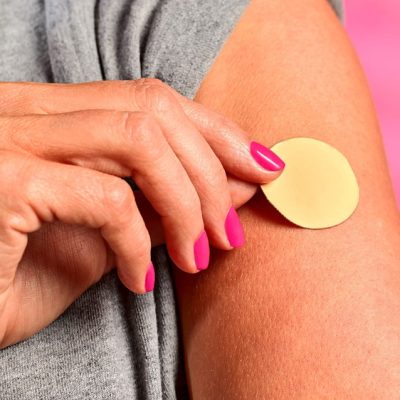

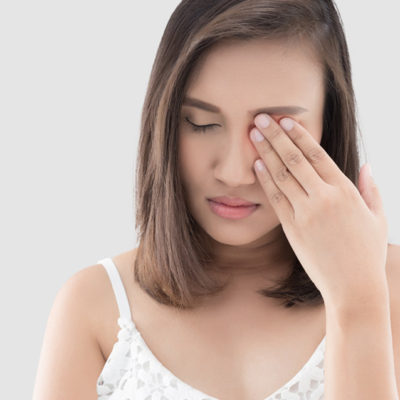
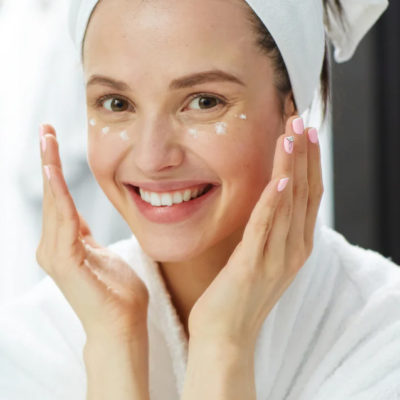
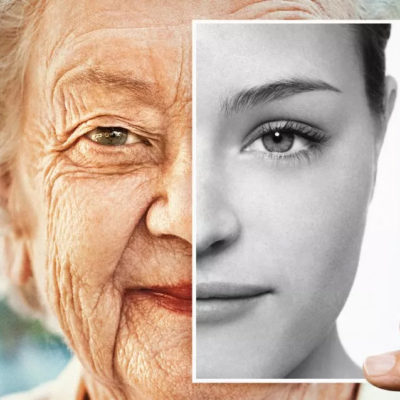
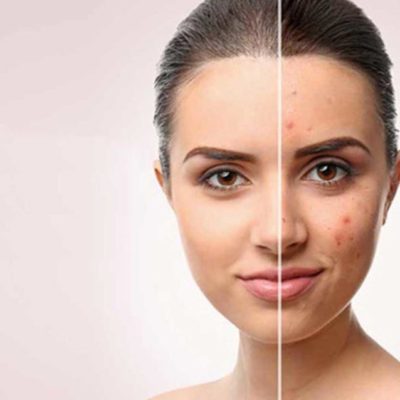
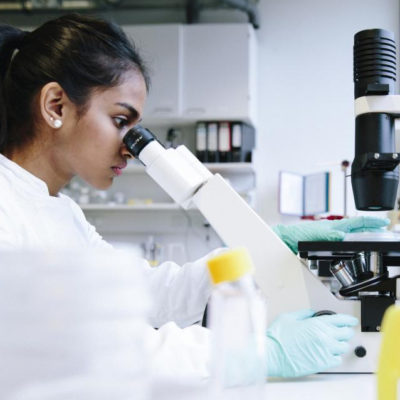
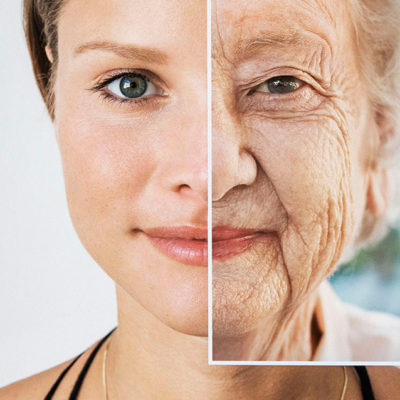
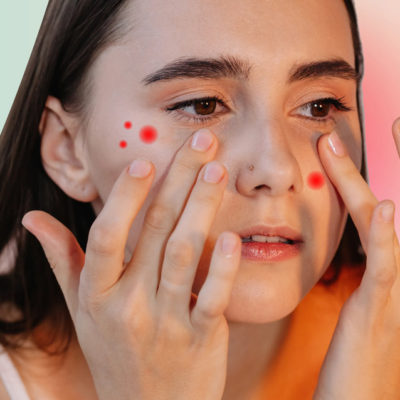
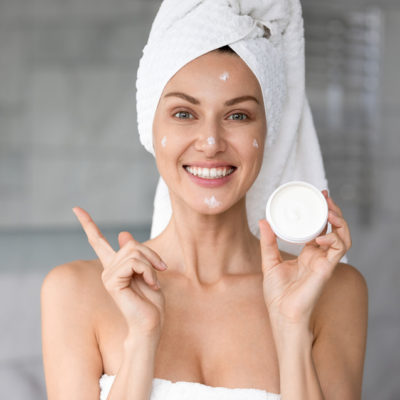


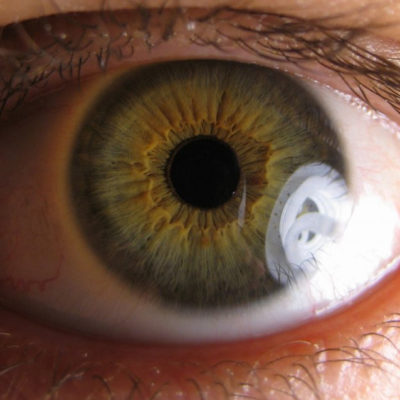

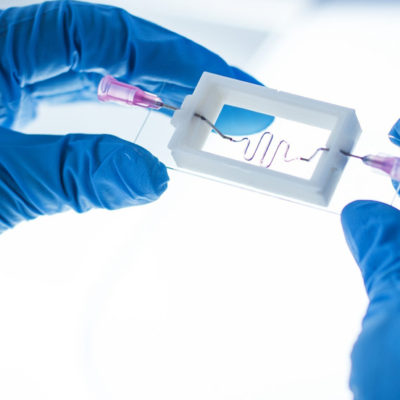

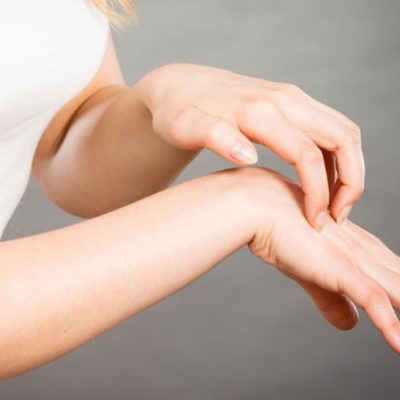
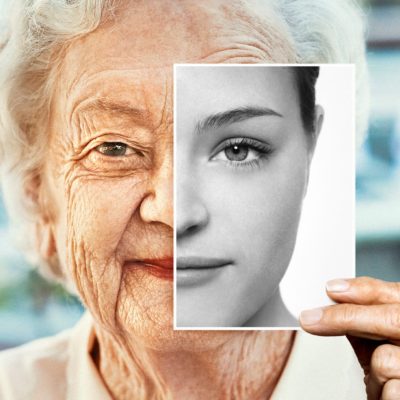
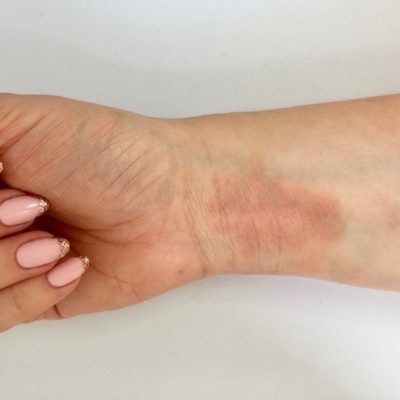
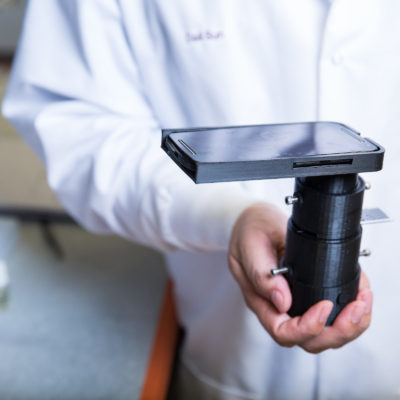
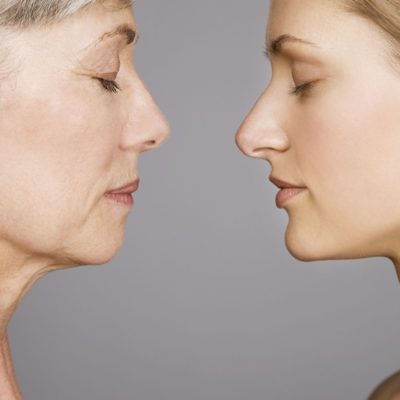
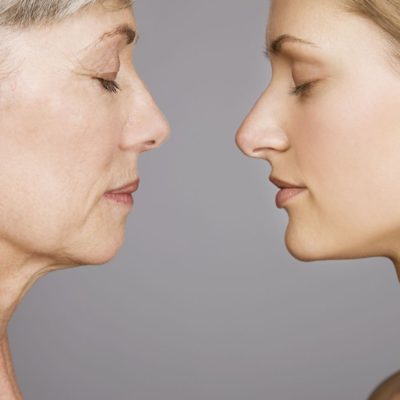

![woman-applying-Retin-A-cream-to-face-4[1]](https://www.womenfitness.net/wp/wp-content/uploads/2019/04/woman-applying-Retin-A-cream-to-face-41-400x400.jpg)



